It’s been more than a decade since RuPaul’s Drag Race first made its debut in the US, and in July, Canada is about to get more fabulous with the premiere of Canada’s Drag Race. In the first of *fingers crossed* many seasons, Canadian queens will be showing off their charisma, uniqueness, nerve, and talent in a race toward the title of Canada’s first Drag Superstar.
Among the judges is Drag Race Season 11 alum and Canadian treasure, Brooke Lynn Hytes. I spoke with the Queen of the North herself about returning to Canada as a judge on the new series, being on the other side of the table, the uniting power of drag, and more!
Read the full interview with Brooke Lynn Hytes below, and be sure to tune into Canada’s Drag Race this Thursday, July 2nd on Crave.
How does it feel to put something out into the universe — your wish for a Canada’s Drag Race — and then it actually comes true?
Right after we filmed Season 11 — it was July or August 2018 and I was in Los Angeles. I went to the World of Wonder offices just to say hi to everybody and have a couple of meetings about maybe doing some web shows for them. I was sitting in the office with Fenton (Bailey) and a couple of the other guys, and I said, “You know what I would really love? If there is one day a Canada’s Drag Race, and I would love to be a judge on it or even just make a special appearance. It would be so cool.” And they were like, “Oh yeah, maybe. We’ll see.” Meanwhile, they had already been in negotiations.
Cut to nine months later and I got a call saying, “Hey, do you want to be a permanent judge on Canada’s Drag Race?” I could not believe it. It seemed like such a far-fetched, far off dream that maybe one day if I was super lucky five years from now it would happen, but the fact that it happened in less than a year from me being on the show is insane to me. And I could not be more grateful.
In the grand scheme of the Drag Race franchise, it’s been a relatively short time from you being a contestant to becoming a judge. What’s it like being on the other side of the table?
It’s been really great, honestly, slightly less stressful, and it’s nice to not have to compete. The hardest thing for me with Drag Race is that I’m someone who likes to prepare. I like to think things through and come up with a game plan. The problem with Drag Race is things are thrown at you, and you have to think really quickly on your feet, which is something I struggle with. That’s not how I think about things.
It was a lot less stressful for me to be able to just sit there and judge the girls on what I saw. That’s something I’m very good at. I have a very good eye. I’ve done drag for a long time. I understand it, understand fashion, and I also understand firsthand what these girls are going through. This is a very, very tough competition and something that I’ve done, and I’m able to relate to them on a very personal level. It made me a better judge.
You have the unique position of being to put yourself in their shoes. How did what you learned as a contestant affect the way you judged these queens?
The biggest thing is when I can see them getting in their heads. I got in my head so much when I was a contestant. Doubting themselves, not believing in themselves, and not understanding that this is a show. They have to go balls to the walls — pardon the expression. More is more on Drag Race. You always want to be told, “Wow, that was a lot. Thank you. I need you to bring it back a little bit.” You never want to be told, “You didn’t give us enough.” That was something I saw a lot in the girls, and it’s a hard message to get across to people. Once you get it into your mind, you’re like, “Oh, okay, I understand it now.” I was able to give really good critiques and feedback to them knowing how they were feeling and the position they’d been in.
Jeffrey Bowyer-Chapman has been a guest judge in the past, but did you find that your fellow judges looked to you for guidance or advice based on your experience as a contestant?
There were times I looked to Jeffrey for advice as he had been a judge before, and then there were times that they would look to me for advice. Other times. we’d look to Stacey [McKenzie] for advice if it was a fashion thing. The great thing about the three of us is we all come from very different worlds. We’re all experts in different things. It was very much a team effort.
What do you think are the defining aspects of Canadian drag, and what sets it apart from Drag in the US?
Drag in Canada is definitely similar to drag in the US. Drag in the UK is very campy and very cabaret. In the US to Canada, we’re so close that it kind of melts together. One big difference is that the US has a really big pageant presence. They do national drag pageants. Even in the non-drag world, pageants are a big thing in the States and it is not a big thing in Canada. We’re not a competitive people. That’s the biggest thing that’s missing in the Canadian drag scene. But we everything else that the States has and more. We have amazing theatre performers, dancers, circus performers. We really just have it all, and these girls brought such amazing performances and looks to the show. I can’t wait for everyone to see it.
To take your drag career further, you moved to the US which allowed you to compete in Drag Race. Does returning to Canada as a judge for Canada’s Drag Race feel like a full-circle moment?
I left because there wasn’t anything else for me to do in Canada. With drag in Canada — especially Toronto — once you get your gigs at your local bars, you do the weekly [shows] and then that’s it. We don’t have any national pageants to win, there were no TV shows to be on. The States had RuPaul’s Drag race and it also had pageants. I started doing pageants, and that took me to the States. Then I got my green card, and I was able to get on RuPaul’s Drag Race.
It really is a full-circle moment, and exciting for me to be part of [Canada’s Drag Race]. It’s so important in any profession to have goals, aspirations, and dreams. That’s what RuPaul’s Drag Race gave me. It gave me a goal and something to work for. I had my eye on the prize the whole time. For the last decade, I knew that’s what I wanted to do. I wanted to get on the show, and that’s what kept me going.
Now we have [Drag Race] in Canada. We have something for all of these amazing, talented Canadian artists to dream about, to reach for, to make them better, to make them want to work harder, to make them go that extra mile and really push themselves and be the best drag queen they can be. That’s what they need. You need inspiration and aspiration to become better. I’m incredibly thankful to Crave, Bell Media, World of Wonder, Blue Ant, RuPaul, and everybody who came together to make this happen and just give Canadian queens a reason to dream.
I love that drag is being recognized as the amazing art form it is. It’s not what performers do when they can’t get another job in the performing arts. It is now the goal.
You can make drag your legitimate career. I quit my job as a ballet dancer in 2012, so for the past eight years, I’ve made a living doing drag. It was very, very hard at the beginning, but I made it work into my full-time job. I’ve never had to take any other work, and being on [Drag Race] made it so much easier. It opens so many doors, gives you more opportunities and a whole new platform. That’s another reason I’m so excited for these Canadian queens because I know firsthand how hard they work, and how much passion you need for this craft. I’m excited that they get this opportunity to reap the benefits of that.
Drag has gone beyond the queer community and is uniting people around the world thanks to the Drag Race franchise. They’re seeing the beauty in these drag families and how it can be used to process important issues. What are your thoughts on drag having found a much wider audience?
Canada’s Drag Race is great for so many reasons. Little Canadian kids are gonna be able to look on their screen and say, “Wow, that person looks like me. I think I might be like that person. I think I might be gay.” For straight people who don’t know anything about drag, they’re going to be able to watch the show and have a great time. My favourite thing about the show is that it humanizes drag to people. It makes it accessible and understandable. They see that it’s not this big, scary thing. They’re not scary clowns or circus freaks. They’re real human beings — just like them — and this just happens to be what they love to do. It really shows that drag is for everybody, and it’s about love, acceptance, and self-expression. And fun and fabulous.
I have so many straight friends who love it. And I get messages from straight couples who are like, “We just love you. You were so good on that show. You should’ve won,” and I’m like, “Thank you, sir.” A straight man came up to me and said, “Yo, that lip-sync was amazing, bro.” It’s so cool that these straight bro guys are really into Drag Race because it’s a fun show. It’s really the best of everything. You have fabulous costumes, challenges, comedy, and dancing in one amazing package.
Do you have any teases or any final thoughts on Canada’s Drag Race that you’d like to share?
I’m grateful that we were able to make the show before COVID happened and everything has to shut down. And I’m grateful that I was given the opportunity to be part of it with Jeffrey and Stacey. I’m excited for everyone to see it. I hope they enjoy it and feel the love that was poured into it because we had the best time making it.
Photos Courtesy of Crave
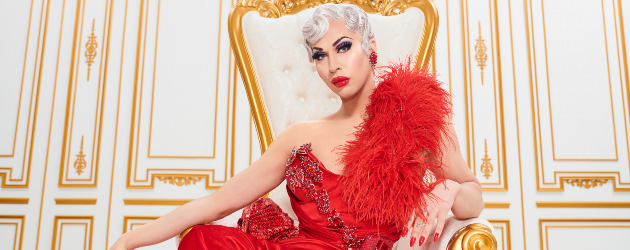
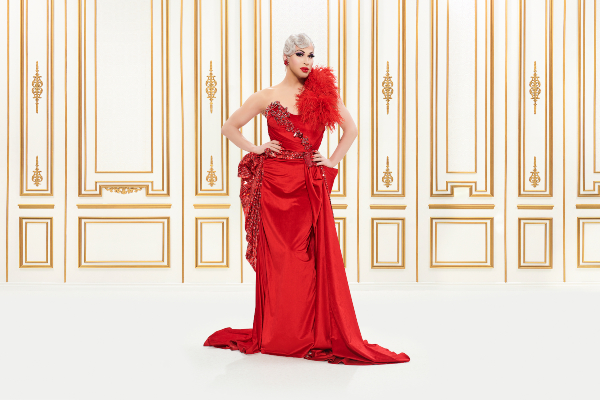
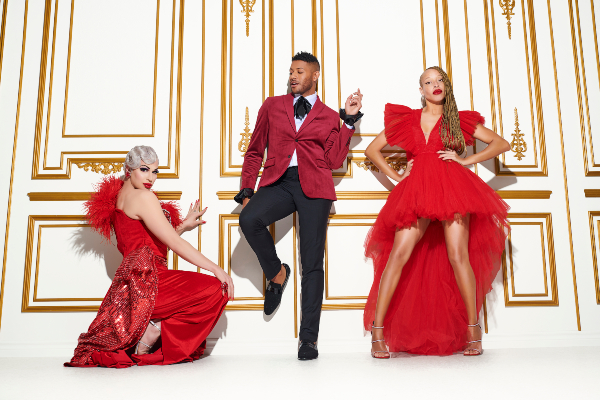
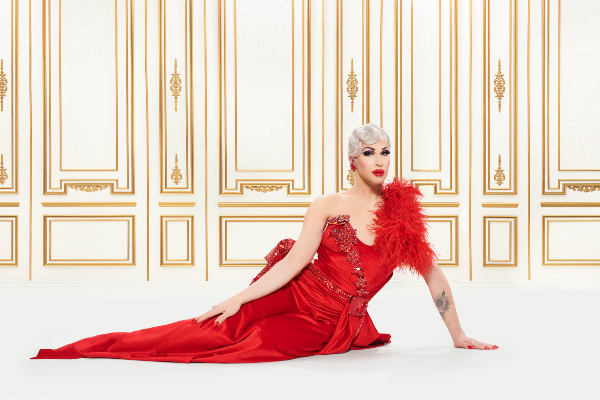
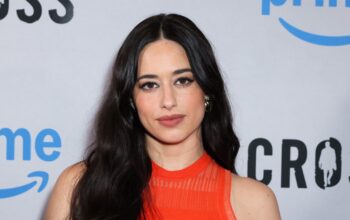


One thought on “Canada’s Drag Race is a Homecoming for Judge Brooke Lynn Hytes”